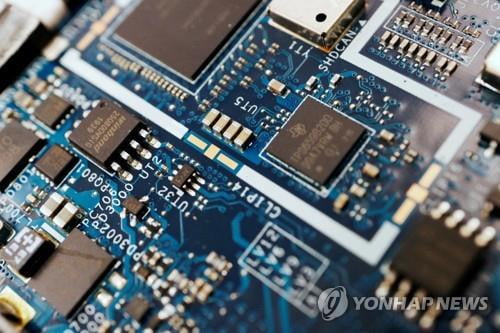Semiconductor-related stocks in the US and other countries all declined at the same time the US administration announced export control measures against Chinese semiconductor manufacturers, reaching a low in nearly two years.
According to Bloomberg and Reuters on 10 (local time), the Philadelphia Semiconductor Index, which shows the share price of the U.S. semiconductor industry, fell 3.5% on the same day to close the lowest since November 2020.
The index has tumbled over 40% this year, dropping nearly 10% over the past three trading days.
By shares, semiconductor equipment maker Applied Materials was down 4.1%, Ram Research by 6.4%, KLA by 4.7%, Marvell Technology by 4.8% and AMD by 1.1% respectively. .
Dutch ASML, listed on the US stock market, fell 2.9% and that of Hong Kong, China’s largest smelter (semiconductor contract manufacturing) SMIC (Chinese Xin Guoji) fell 4%.
Notably, small-cap stocks fell more sharply, so semiconductor equipment maker ACM Research plunged 27% on the New York Stock Exchange on 10, and the share price of its Shanghai-listed subsidiaries also fell. 20%.
In the Hong Kong stock market, China’s second largest foundry, Huahong Semiconductor, fell 9.4%, Shanghai Fudan Microelectronics Group fell 20%, and China’s Will Semiconductor and MaxSand Technology each fell 6%.
In Korea, Samsung Electronics and SK Hynix also showed a drop of around 3% earlier in the day.
The U.S. Department of Commerce export control policy announced on the 7th included measures to effectively ban the sale of US-made high-tech semiconductor equipment to China and to limit exports of semiconductors used in artificial intelligence (AI) and in supercomputers.
If a US company sells advanced semiconductor manufacturing equipment to a Chinese company that produces chips above a certain level, it is required to obtain a separate license and if a Chinese company owns a semiconductor manufacturing facility in China, the so-called “presumption of refusal” to practically completely ban exports.
Specifically, ▲ DRAM less than 18nm (nanometers, billionths of a meter) ▲ 128 or more NAND flash ▲ To obtain a license for American companies to sell in China.
In addition, export restrictions have been imposed on the trade in semiconductor chips and high-tech semiconductor chips for supercomputers.
The Wall Street Journal (WSJ) has predicted that Chinese semiconductor companies such as YMTC (Yangtze Memory Technology) and Changshin Memory (CXMT) will be affected by this measure.
YMTC, headquartered in Wuhan, China, is the largest memory semiconductor manufacturer in China, accounting for about 6% of global memory chip production, according to market research firm TrendForce.
However, US export control measures put the growth plan for next year at risk.
Changshin Memory, a DRAM manufacturer, may be affected by export restrictions on DRAM manufacturing equipment below 18nm.
Regarding the US Department of Commerce’s measures to limit semiconductor exports to China, Chinese Foreign Ministry spokesman Maoning said, “This method violates the principle of fair competition and violates international economic and trade rules, and not only harm the rights and legitimate interests of Chinese companies, but also harm American companies, will have an impact on the interests of
China has accelerated its “self-sufficiency” in sectors such as semiconductors in response to US restrictions.
According to the International Semiconductor Equipment and Materials Association (SEMI), China plans to build 31 new major semiconductor manufacturing plants (Fabs) by 2024.
This is the largest in the world, surpassing Taiwan (19) and the United States (12) over the same period.
Analysts also say US action could have a negative effect on the global semiconductor market.
David Wong, an analyst at Nomura Holdings, said the move is a major setback for China and bad news for the global semiconductor market.
/ yunhap news


